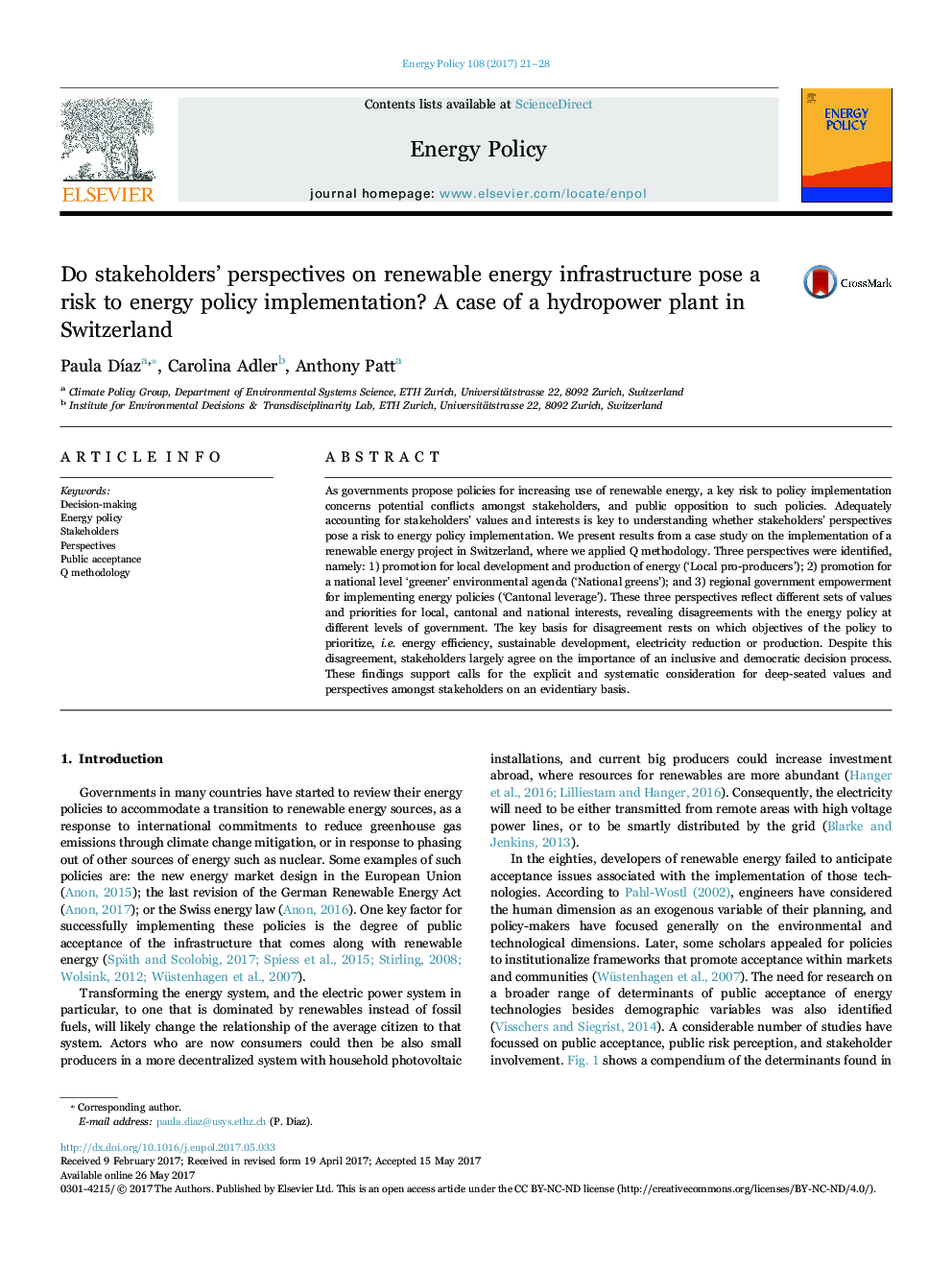| کد مقاله | کد نشریه | سال انتشار | مقاله انگلیسی | نسخه تمام متن |
|---|---|---|---|---|
| 5105614 | 1481250 | 2017 | 8 صفحه PDF | دانلود رایگان |
- Energy policy preferences vary amongst local, cantonal and national levels in the federal system.
- While local stakeholders are pro-producers, national stakeholders are pro-efficiency.
- Stakeholders value human aspects as decisive for accepting renewable energy policies.
- Stakeholders require inclusive decision-making process to accept energy policies.
- There is a need for enhanced communication of the energy policy objectives down to the local context.
As governments propose policies for increasing use of renewable energy, a key risk to policy implementation concerns potential conflicts amongst stakeholders, and public opposition to such policies. Adequately accounting for stakeholders' values and interests is key to understanding whether stakeholders' perspectives pose a risk to energy policy implementation. We present results from a case study on the implementation of a renewable energy project in Switzerland, where we applied Q methodology. Three perspectives were identified, namely: 1) promotion for local development and production of energy ('Local pro-producers'); 2) promotion for a national level 'greener' environmental agenda ('National greens'); and 3) regional government empowerment for implementing energy policies ('Cantonal leverage'). These three perspectives reflect different sets of values and priorities for local, cantonal and national interests, revealing disagreements with the energy policy at different levels of government. The key basis for disagreement rests on which objectives of the policy to prioritize, i.e. energy efficiency, sustainable development, electricity reduction or production. Despite this disagreement, stakeholders largely agree on the importance of an inclusive and democratic decision process. These findings support calls for the explicit and systematic consideration for deep-seated values and perspectives amongst stakeholders on an evidentiary basis.
Journal: Energy Policy - Volume 108, September 2017, Pages 21-28
